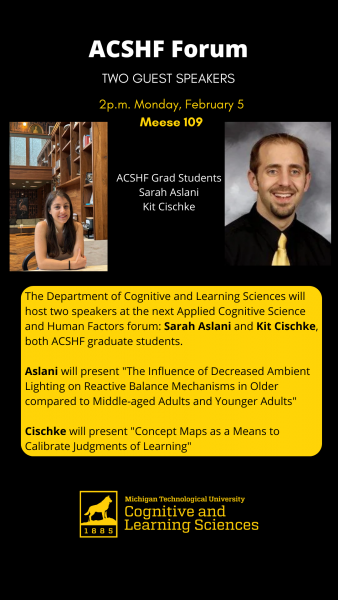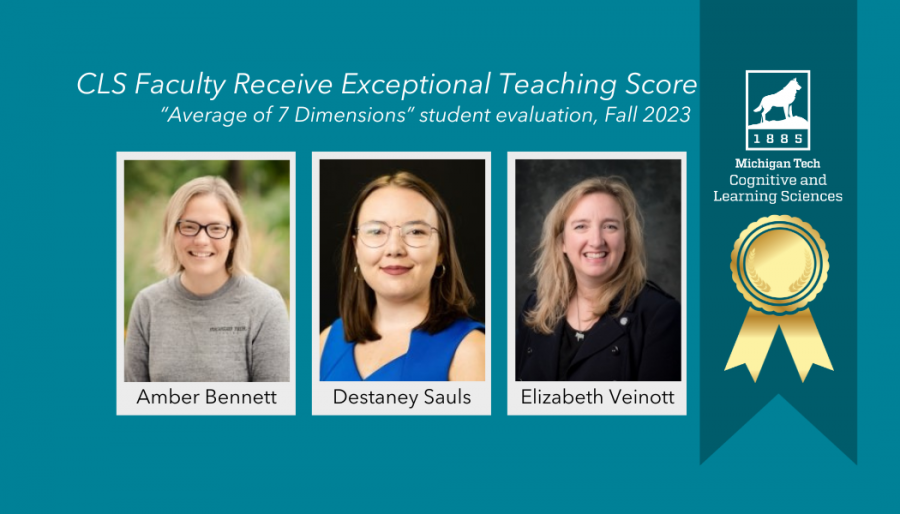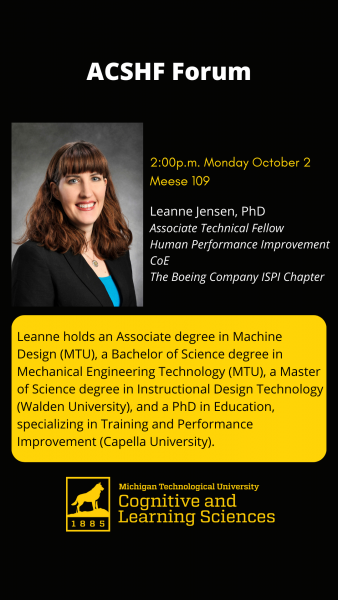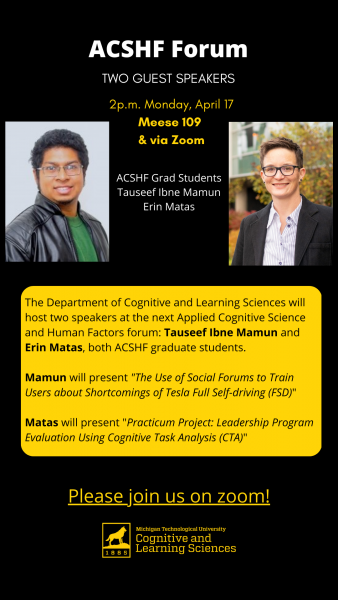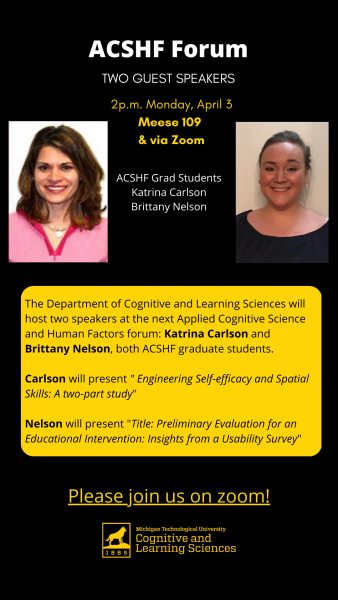The Department of Cognitive and Learning Sciences will host Kristin Kolodge at the next Applied Cognitive Science and Human Factors forum Monday April 1, in Meese 109, from 2:00 p.m. to 3:00 p.m. and via Zoom.
“Is the Auto Industry Right for Me?”
As a human factors professional, what does a career in the automotive industry look like, and why is that skillset so critical? Hear Kristin Kolodge, an MTU alumna and nearly 30-year veteran in the automotive industry, describe her journey at Fiat Chrysler (now Stellantis) and J.D. Power where she has developed automotive features, created new HMI processes and new user experience research centered around the customer’s interaction with their vehicle.

